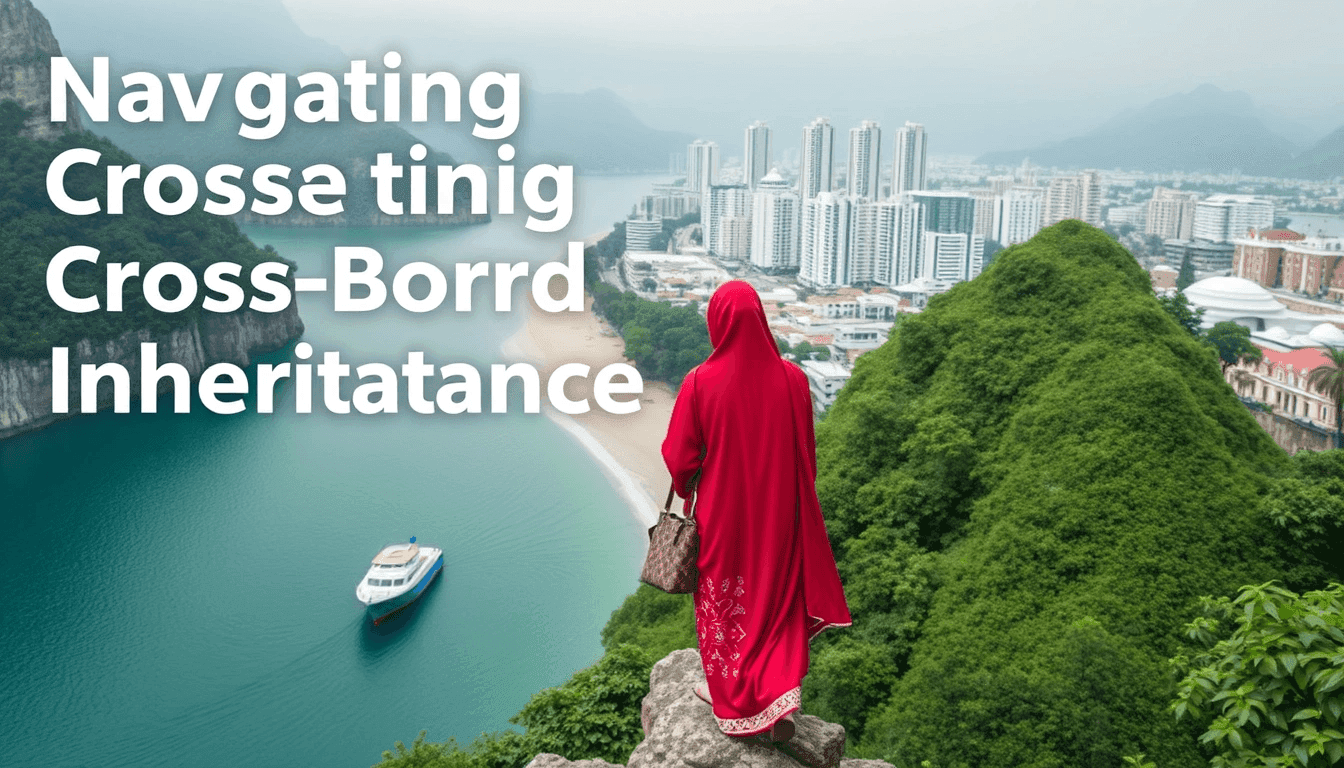

The global diaspora continues to expand, and with it, a unique set of challenges arises for non-resident Indians (NRIs) managing their affairs back home. For the sizable Canadian NRI community, one of the most pressing legal hurdles following the demise of a loved one in India often involves securing a Succession Certificate. It's a critical document, yet its acquisition from thousands of miles away can feel like navigating a labyrinth, demanding patience, precision, and an intimate understanding of Indian legal intricacies.
At its core, a Succession Certificate is a legal instrument issued by an Indian civil court, affirming the legitimate heirs to the movable assets of a deceased person. Think bank accounts, shares, provident funds, fixed deposits, or even certain debts owed to the deceased. Without it, financial institutions in India are understandably hesitant to release funds or transfer ownership, leaving grieving families in Canada in a bureaucratic limbo. It isn't about immovable property, mind you—that falls under different legal frameworks like probate or Letters of Administration—but for liquid assets, this certificate is paramount.
The complexity isn't merely geographical. Canadian NRIs often find themselves grappling with a legal system that operates vastly differently from common law jurisdictions. Language barriers, time zone differences, and the sheer volume of required documentation can quickly become overwhelming. What's more interesting is the inherent requirement for a degree of "physical presence" or, at the very least, robust legal representation on the ground in India, which can be a significant logistical and financial strain for someone based in Toronto or Vancouver.
The process typically begins with filing a petition in the appropriate civil court in India, usually within the jurisdiction where the deceased resided or where the assets are located. This petition must meticulously detail the deceased's information, the relationship of the petitioner to the deceased, a comprehensive list of all movable assets, and the names of all potential heirs. This is where the initial friction points often emerge. Canadian NRIs must gather authenticated copies of the death certificate, proof of their relationship to the deceased, and detailed statements of the assets from various Indian financial institutions. Critically, any documents originating from Canada, such as a local death certificate or affidavits, usually require apostille or consular legalization before they hold weight in an Indian court. This step alone can add weeks, if not months, to the timeline.
Once filed, the court issues a public notice, typically published in local newspapers, inviting objections from any party within a specified period—often 45 days. This is a crucial window, designed to ensure transparency and prevent fraudulent claims. For an NRI, monitoring these notices from afar is practically impossible without local support. If no objections are raised, or if any objections are successfully addressed, the court proceeds to examine the petition and, if satisfied, issues the Succession Certificate. The court may also require the petitioner to furnish a surety bond or indemnity bond to protect the interests of other potential heirs.
This intricate dance highlights why the role of experienced legal counsel in India isn't just helpful; it's virtually indispensable. A seasoned Indian lawyer, particularly one well-versed in NRI affairs, can navigate the jurisdictional nuances, prepare and submit the precise documentation, respond to court queries, and ensure all procedural requirements are met diligently. Many Canadian NRIs opt to grant a Power of Attorney (PoA) to a trusted family member or, more commonly, to their appointed lawyer in India. This PoA, too, must be properly executed, attested, and legalized in Canada before being sent to India – another layer of administrative detail that needs careful handling.
Common pitfalls include incomplete documentation, misidentification of beneficiaries, jurisdictional errors, unexpected family disputes that surface during the notice period, and simply underestimating the time commitment involved. It's not uncommon for the entire process to stretch anywhere from 6 to 18 months, sometimes even longer if there are disputes or complex asset portfolios. Proactive estate planning, including a well-drafted will in India, can significantly streamline this process, though many NRIs, unfortunately, don't prioritize this until it's too late.
However, technology has certainly eased some aspects. Secure document sharing platforms and video conferencing facilities allow Canadian NRIs to stay closely connected with their legal teams in India, enabling real-time consultations and progress updates. Yet, the fundamental legal requirements for physical document submission and court appearances (even if through a PoA holder) remain.
Ultimately, for Canadian NRIs, seeking a Succession Certificate in India is a journey that underscores the growing demand for specialized cross-border legal and financial advisory services. It's a testament to the enduring ties many hold with their homeland, even as they build lives abroad. While challenging, with the right preparation and professional guidance, it’s a navigable path, ensuring that the legacy of their loved ones is honored and their assets are rightfully secured.

About Harleen Kaur Bawa
Harleen Kaur Bawa is a licensed immigration attorney specializing in Canadian immigration and Indian services. With extensive experience in family sponsorship, Express Entry, refugee claims, and OCI services, she has successfully helped hundreds of clients navigate complex immigration processes.
Harleen holds degrees from York University - Osgoode Hall Law School and the University of Toronto, and is certified by the Law Society of Ontario and the Immigration Consultants of Canada Regulatory Council. She is committed to providing personalized, professional legal services to help clients achieve their immigration goals.
Related Articles

UK Intensifies Student Sponsor Checks: Tougher Sanctions, Student Verification Now Crucial
UK tightens student visa compliance for institutions. Discover stricter audits, penalties & crucial steps for international students to verify sponsors.

Navigating the Global Talent Maze: Translating Diplomas and Enduring Consular Waits for Employer-Led Entry
Master the global talent hunt. Understand employer-led immigration hurdles: diploma validation, lengthy visa waits, and variable processing by region impacting international hires.

Ongoing Consultations with Provinces Shaping National Policy Landscape
Federal-provincial consultations in Canada aim to forge a national strategy for economic recovery, climate, & healthcare. Explore how this will redefine intergovernmental cooperation.